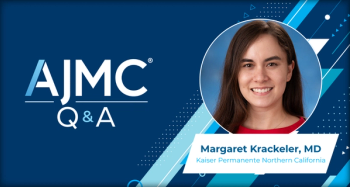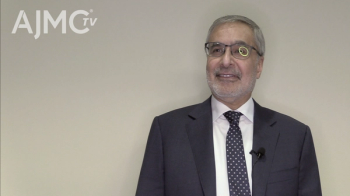
Heather Zacker on Digital Health's Potential to Revolutionize Diabetes Care
Faced with an overwhelming amount of healthcare settings and information, patients with diabetes could find that digital health tools are a powerful resource for managing their illness, according to Heather Zacker, MS, senior director of Care Alliances of Joslin Innovation at Joslin Diabetes Center.
Faced with an overwhelming amount of healthcare settings and information, patients with diabetes could find that digital health tools are a powerful resource for managing their illness, according to Heather Zacker, MS, senior director of Care Alliances of Joslin Innovation at Joslin Diabetes Center.
Transcript (slightly modified)
What role can digital technology have to improve collaborative care for patients with diabetes?
Right now people go to so many different care settings. You could be in the emergency room, in the inpatient, in the nursing facility, a rehab facility, at your [primary care physician]’s office, at your cardiologist’s office, seeing your podiatrist, et cetera. Sometimes there’s a wonderful electronic health record and all the data you need is there, but the other thing to remember about diabetes is it’s a 24/7 condition.
Going to see your doctor, even if you go every 3 months and you have an A1C done and then you have your eye screen yearly, there’s all the other hours of the day. There’s the time when you’re getting a cold and you might need a little bit of extra reinforcement or knowledge of how to handle it, or you’re traveling and you want to find out what to do there. So that’s where I see digital solutions as having a significant role.
It can be an equalizer of communication among all the different parties, and it can also be a resource and tools for patients so they’re not looking around on the web and trying to judge what has the most credibility. There’s an opportunity to do it in a cohesive, coordinated way where their doctor sees what they’re looking at, their health coach is involved, there’s the opportunity to track blood glucose and become more expert at understanding your own patterns, have the physician understand those patterns and where there are opportunities.
So I think that digital tools could really revolutionize the way that chronic diseases such as diabetes are cared for.
Newsletter
Stay ahead of policy, cost, and value—subscribe to AJMC for expert insights at the intersection of clinical care and health economics.
















